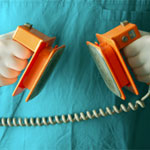Could I Die During a Hair Transplant Procedure?
What’s the risk of dying from hair transplant procedure?
 Short answer — the risk is extremely minimal, at nearly zero. Hair transplants are a surgical procedure and if your doctor did not know what he is doing, you could die. There is one case report of a death during a hair transplant from a couple years back, which I wrote about before.
Short answer — the risk is extremely minimal, at nearly zero. Hair transplants are a surgical procedure and if your doctor did not know what he is doing, you could die. There is one case report of a death during a hair transplant from a couple years back, which I wrote about before.
Not only could you die from the local anesthetic that is normally safe in proper doses, but you can have an allergic reaction, an arrhythmia of the heart, a stroke or heart attack at the time of the surgery (possibly the same risk as if you were home doing regular house work), or you could die of infections, amongst other things. Then again, you can also die at the dentist for similar reasons.
In the 19 years that I have been doing this surgery, I have never had a complication that could have produced death. The risk factor is incredibly low (statistically zero), so your chances of death are essentially none. You should also read these more in-depth posts if that doesn’t set your mind at ease:

Some important patient risk factors the physician will want to know about include:
* tobacco use, especially long-term cigarette smoking
* alcohol abuse or heavy drinking
* obesity
* malnutrition, including bulimia and anorexia
* use of immunosuppressive drugs, including corticosteroids and chemotherapy
* use of herbal supplements
* immunosuppressive disease—e.g., HIV-AIDS
* diabetes or other chronic metabolic disease
* chronic disease of the heart, liver, kidneys, lungs or gastrointestinal system
* chronic or recurrent skin infections such as boils
* chronic or recurrent bacterial or viral infections
* medications that decrease the ability of the blood to clot, such as anti-inflammatory drugs
* conditions that require antibiotics prohylaxis, such as artificial joints or valves
Thanks for answering the original question. It looks like the biggest risk is the local anesthesia. How much lidocaine is usually injected onto a scalp for a standard procedure, say 2000 grafts?
I remember my first HT (with NHI) where I felt quite nauseated after the first injection. My pulse rate dropped to low-40s. The doctor then injected epinephrine, and things were cool afterwards. Is injecting epinephrine to reduce side-effects a standard practice now?
I am considering another HT, and so the research.
You guys have a wonderful 2010!